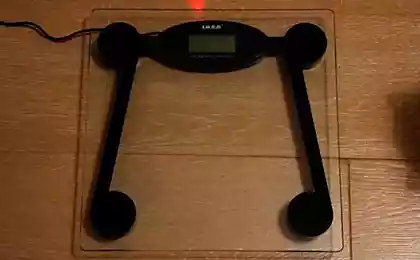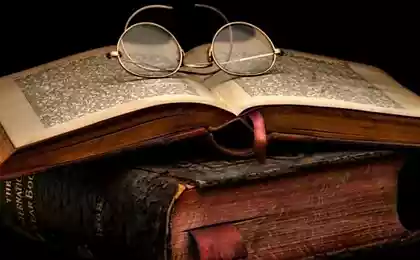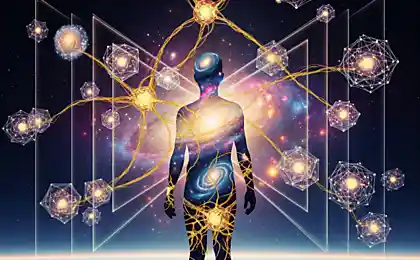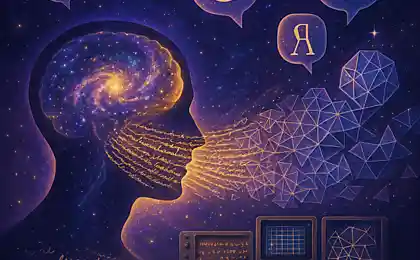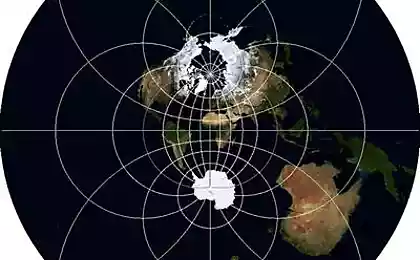515
Susan forward: Toxic parents
About the book Susan Forward "Toxic parents" It's a good book in family psychology and is especially valuable in it — a very clear step-by-step explanation of the causes, consequences, required actions and zero water.
... almost all adult children of toxic parents are observed to be surprisingly similar symptoms: low self-esteem, which drives them to self-destructive behavior. Anyway, they all feel unworthy, unloved and inadequate....
In the world there are two news: good and bad. Bad – if you had a difficult and traumatic childhood, you have forever had a difficult and traumatic childhood.Good – childhood in the past, and it's never too late to have a prosperous present.
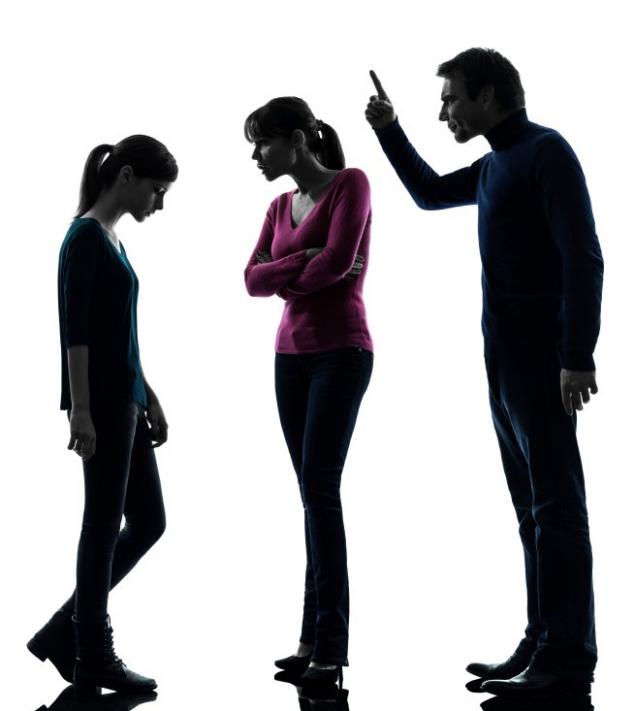
So, who are toxic parents?
Toxic parents are those parents who constantly treat their children in a manner that threatens their sense of personal dignity.
There is a type of people, they are called "heavy", so they become the most toxic, and not just parents. This people are too serious about life, burdened by taboos, conventions, stereotypes. Toxic parents, according to the author, "... tend to see rebellion or even individual differences as attacks against themselves personally. They defend, thereby increasing the dependence and helplessness of their children. Instead of having to guide and promote the healthy development, they unconsciously undermine it, often while in the belief that acting in the interests of their children..."
And there is a child, mercurial mind, fully confident that the parent's rights. I think everyone had at least once in your life to hear from their parents phrases such as "it builds character" or "she/he should learn to distinguish the good from the bad".
Or to most familiar situations, "name":
C. Forward identificeret a number of different types of toxic parents. There are parents who just emotionally inadequate. There are parents who will use hyperopic, thereby, not allowing the child to fill their own cones.
Have a child who from infancy forced to seek the love of their parents, he realizes that no one will love just on the fact of his birth that he should try to please, to be good and then perhaps receive a reward from mother or father even a hint of attention to him and a kind word.
Since childhood instilled a complex that he is bad and unworthy that causes a lot of problems with parents. And there is another category of children: good kids and dad and mom pleased, and he was so-so. Eventually grows a person,who is confident that it is not something to love. That all life need to get people attention through gratification. Swallow the negativity from people who like and need and gives it for "respect" to another.If a woman will meet a loving man, did not understand. For it is wildness. She just doesn't know how to accept love. The victim complex.

But still this is a relatively subtle types of parental toxicity and their effects; others are much more violent.
Important feature here again is alcoholism.
Next: insults are physical and verbal. In some given situations, people said that it would be easier to move a beating than verbal abuse, because the scars on the body heal faster than the scars in my soul.
Finally, there is parental sexual abuse — the phenomenon, which, as we know, in its various forms has an impact on a significant proportion of children, both female and male. In the book meant the suppression of the child's parents, as the weak and dependent creatures. The prohibitions are bad, but the suppression of his personality. It's one thing when the child is forbid to smoke and drink, and another thing, when the child is forbid to draw, for example, when he wants, citing the fact that he does not know how to draw (of course, I will not learn!) and will not be able never. Or that he MUST be a programmer or a doctor because the PARENT wanted once. And in adult life toxic parents trying to prove how your family life is hopeless, or on the contrary, madly in love with your partner, and you are considered a loser. Music and lead everyone can not.
The book describes the steps for curing anger, to build new, adult relationships with parents.
Helps to really work on yourself. In the book there is no water. It is completely practical.
Though this book was written in 1989, its relevance it has not lost.
However, it is necessary to specify first of all the readers that despite the ease and simplicity of the text can evoke strong emotional reactions and triggers. Be careful and very careful. However... this book can give us a little help in understanding their destructive behavior. It seems to me that knowing about the ways in which are toxic parents find it easier to trace the beginnings of this behavior and to stop it at the beginning of the education of their children. However, to identify themselves as toxic or not toxic parent, we can only after many years, when the child has become an adult, independent person, and he will be able to tell how certain words/actions imprinted in his soul. Although I still can't raise mom and grandma talking about it. It was a coup from the awareness of many things. Although I was raised not horrible methods, because no matter how hard the parent is the imprint of his action in the soul of a child is IMPOSSIBLE to predict.
Reading this book, be prepared that You will have...
1. "you are not responsible for what he did to you while you were defenceless child!"; and "you are responsible for taking positive steps to ensure that something to do with it now!"
2.... and get to work... posted
P. S. And remember, just changing your mind — together we change the world! ©
Source: www.li.ru/interface/pda/?jid=1765476&pid=356156836
... almost all adult children of toxic parents are observed to be surprisingly similar symptoms: low self-esteem, which drives them to self-destructive behavior. Anyway, they all feel unworthy, unloved and inadequate....
In the world there are two news: good and bad. Bad – if you had a difficult and traumatic childhood, you have forever had a difficult and traumatic childhood.Good – childhood in the past, and it's never too late to have a prosperous present.

So, who are toxic parents?
Toxic parents are those parents who constantly treat their children in a manner that threatens their sense of personal dignity.
There is a type of people, they are called "heavy", so they become the most toxic, and not just parents. This people are too serious about life, burdened by taboos, conventions, stereotypes. Toxic parents, according to the author, "... tend to see rebellion or even individual differences as attacks against themselves personally. They defend, thereby increasing the dependence and helplessness of their children. Instead of having to guide and promote the healthy development, they unconsciously undermine it, often while in the belief that acting in the interests of their children..."
And there is a child, mercurial mind, fully confident that the parent's rights. I think everyone had at least once in your life to hear from their parents phrases such as "it builds character" or "she/he should learn to distinguish the good from the bad".
Or to most familiar situations, "name":
- it is necessary to portray good family to strangers;
- I wish you never been born/Xia;
- you're still a kid, and stay out of my feet;
- grow up — you learn/realize;
- you owe me(a) because I did;
- just do as I said, it's good for you!;
- I'm always right, because I have experience;
- you can't be perfect/first, don't try;
- I can't trust you, you're still clueless...
- and so on...
C. Forward identificeret a number of different types of toxic parents. There are parents who just emotionally inadequate. There are parents who will use hyperopic, thereby, not allowing the child to fill their own cones.
Have a child who from infancy forced to seek the love of their parents, he realizes that no one will love just on the fact of his birth that he should try to please, to be good and then perhaps receive a reward from mother or father even a hint of attention to him and a kind word.
Since childhood instilled a complex that he is bad and unworthy that causes a lot of problems with parents. And there is another category of children: good kids and dad and mom pleased, and he was so-so. Eventually grows a person,who is confident that it is not something to love. That all life need to get people attention through gratification. Swallow the negativity from people who like and need and gives it for "respect" to another.If a woman will meet a loving man, did not understand. For it is wildness. She just doesn't know how to accept love. The victim complex.

But still this is a relatively subtle types of parental toxicity and their effects; others are much more violent.
Important feature here again is alcoholism.
Next: insults are physical and verbal. In some given situations, people said that it would be easier to move a beating than verbal abuse, because the scars on the body heal faster than the scars in my soul.
Finally, there is parental sexual abuse — the phenomenon, which, as we know, in its various forms has an impact on a significant proportion of children, both female and male. In the book meant the suppression of the child's parents, as the weak and dependent creatures. The prohibitions are bad, but the suppression of his personality. It's one thing when the child is forbid to smoke and drink, and another thing, when the child is forbid to draw, for example, when he wants, citing the fact that he does not know how to draw (of course, I will not learn!) and will not be able never. Or that he MUST be a programmer or a doctor because the PARENT wanted once. And in adult life toxic parents trying to prove how your family life is hopeless, or on the contrary, madly in love with your partner, and you are considered a loser. Music and lead everyone can not.
The book describes the steps for curing anger, to build new, adult relationships with parents.
Helps to really work on yourself. In the book there is no water. It is completely practical.
Though this book was written in 1989, its relevance it has not lost.
However, it is necessary to specify first of all the readers that despite the ease and simplicity of the text can evoke strong emotional reactions and triggers. Be careful and very careful. However... this book can give us a little help in understanding their destructive behavior. It seems to me that knowing about the ways in which are toxic parents find it easier to trace the beginnings of this behavior and to stop it at the beginning of the education of their children. However, to identify themselves as toxic or not toxic parent, we can only after many years, when the child has become an adult, independent person, and he will be able to tell how certain words/actions imprinted in his soul. Although I still can't raise mom and grandma talking about it. It was a coup from the awareness of many things. Although I was raised not horrible methods, because no matter how hard the parent is the imprint of his action in the soul of a child is IMPOSSIBLE to predict.
Reading this book, be prepared that You will have...
- explore yourself and your identity.
- to recognize the hardships of the situation (or situations and circumstances) actually occurred;
- to survive the pain and despair and their powerlessness and inability to change it in the past;
- make your life whole, as it were, to include trauma or injury.
- to Express all her rage and pain, restoring torn down the boundaries of identity, to experience the intensity of traumatic experiences;
- to recognize all your feelings is legal and existing;
- accept that you will never be what they were;
- to learn to live with the baggage of the life experience that you have, regardless of whether it is good or not;
- accept yourself the way you are now.
1. "you are not responsible for what he did to you while you were defenceless child!"; and "you are responsible for taking positive steps to ensure that something to do with it now!"
2.... and get to work... posted
P. S. And remember, just changing your mind — together we change the world! ©
Source: www.li.ru/interface/pda/?jid=1765476&pid=356156836
Susan forward: Toxic parents
Bert Hellinger: Purchased at the expense of others paid for their own losses







